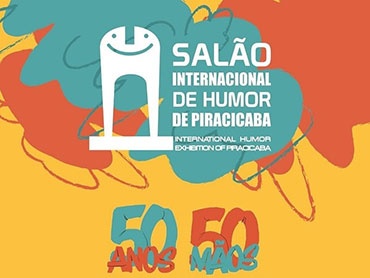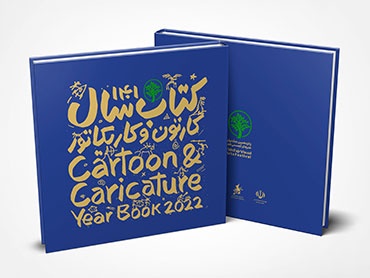
Eduardo Planchart Licea: A Life Dedicated to Latin American Art
PulsoEmpresarial Eduardo Planchart Licea: A Life Dedicated to Latin American Art
To speak of Eduardo Planchart Licea is to speak of a cultivated sensibility, of a restless mind that made art a territory for thinking, feeling, and transcending. For the Oswaldo Vigas Foundation, he was more than a collaborator: he was an intellectual ally, and, above all, a friend of Vigas, with whom he shared projects, conversations, and a committed vision for Latin American art.
Over more than four decades, Eduardo Planchart forged an admirable career as a curator, writer, and art historian. His work has been displayed in key museums in Venezuela, such as the Museum of Contemporary Art in Caracas, the Fototeca de Barquisimeto, and the Museo de la Estampa y del Diseño Carlos Cruz-Diez, but he has also reached international stages in Mexico, Curaçao, France, and Japan. More than 90 exhibitions bear his signature, not as a gesture of authorship, but as an act of generous mediation between the work and the viewer.
His gaze did not seek to impose meanings, but rather to suggest interpretations. He had the rare ability to construct curatorial narratives that respected the autonomy of art without renouncing critical depth. In each exhibition, Eduardo opened a space for wonder, memory, and thought.
A friendship that became a legacy
The relationship between Eduardo Planchart and Oswaldo Vigas was one of those affinities that transcended the professional. They both shared a passion for the symbolic, the ancestral, and the mythical. Both understood art as a language that connects time and spirit. It is no coincidence that Planchart accompanied the master on multiple curatorial projects and publications, always contributing an astute reading, solid writing, and a perspective capable of bringing Vigas's work into dialogue with the great questions of our time.
At the Oswaldo Vigas Foundation, this collaboration was always deeply valued. His presence in our archives, catalogs, and exhibitions not only enriched the content but also reminded us of the value of committed, ethical, and humane criticism.
Beyond the Museum
Eduardo Planchart was also a prolific essayist, author of more than twenty books on Latin American art and visual thought. Works such as Christianity and Wood and The Sacred in Art: Laughter in Mesoamerica reflect his interest in exploring art as an expression of the sacred, the symbolic, and the cultural. He also ventured into fiction with novels such as The Wizard of the Fog and The Saint Maker, where aesthetic sensibility blends with the philosophical and literary.
He was a regular contributor to media outlets such as El Universal, Últimas Noticias, Analítica.com, and Art Miami Magazine, where he maintained an active voice in the artistic and cultural debate, always striking a clear, respectful, and deeply informed tone.
His Legacy Lives With Us
For those of us who are active in the world of Venezuelan and Latin American art, Eduardo Planchart was and will continue to be a reference. His work taught us that curating can be a poetic act, that critical thinking can coexist with emotion, and that art must be understood in its context, but also celebrated in its mystery.
We at the Oswaldo Vigas Foundation deeply regret his passing. His passing pains us, but it also commits us to continue disseminating his work, studying his contributions, and recognizing his place in the art history of our region.
To his family, friends, and colleagues, we send our deepest condolences. To Eduardo, our eternal gratitude for all he gave us. His legacy lives on in every exhibition, in every text, in every conversation that continues to be born from art.
Source

- February 19, 2026
New Masters of Poster Design | Volume 1


- February 19, 2026
Time in the camps


- February 19, 2026
Remedios Varo: Alchemical Surrealism in Mexico

- February 19, 2026
Spatialism and Light in the Work of Lucio Fontana

- February 19, 2026
Steve McCurry Portraits

- February 19, 2026
HDR Photography Photo Workshop

- February 18, 2026
THE ESSENTIAL GUIDE TO LANDSCAPE PHOTOGRAPHY

- February 19, 2026
Remedios Varo: Alchemical Surrealism in…

- February 19, 2026
Spatialism and Light in the Work of Luc…

- February 18, 2026
Frida Kahlo: The Aesthetics of Pain and…

- February 18, 2026
Tarsila do Amaral's Anthropophagy and B…

- February 17, 2026
Art in the Street: Expression, Resistan…

- February 17, 2026
Most famous male cartoonists in Latin A…

- February 16, 2026
The Art of Caricature: Expression, Humo…

- February 16, 2026
The Art of Caricature in Latin America

- February 15, 2026
Joaquín Torres-García and Constructive …

- February 15, 2026
Mexican Muralism: A Dialogue Between Ar…

- February 14, 2026
Urban and Street Art

- February 14, 2026
Art as the Awakening of the People

- February 12, 2026
Contemporary Printmaking and the Concep…

- February 12, 2026
Graphic design as visual language in co…

- February 10, 2026
The Forging of Modern Mexican Sculpture

- February 10, 2026
The Legacy of the Avant-Garde in Modern…

- February 09, 2026
Fernando Traverso: The Art of Absence a…

- February 09, 2026
Latin American Art and the Palestinian …

- February 08, 2026
Indigenous Artistic Expressions of Lati…

- February 08, 2026
Indigenous Artistic Expressions of Lati…

- August 29, 2023
The history of Bolivian art

- February 19, 2024
Analysis and meaning of Van Gogh's Star…

- January 28, 2024
Culture and Art in Argentina

- September 25, 2023
What is the importance of art in human …

- September 23, 2023
What is paint?

- August 23, 2023
The 11 types of art and their meanings

- August 10, 2023
14 questions and answers about the art …

- September 23, 2023
Painting characteristics

- August 30, 2023
First artistic manifestations

- January 12, 2024
10 most beautiful statues and sculpture…

- March 26, 2024
The importance of technology in art1

- September 23, 2023
History of painting

- July 13, 2024
The impact of artificial intelligence o…

- October 18, 2023
History of sculpture

- March 26, 2024
Cultural identity and its impact on art…

- December 20, 2024
What is art? Definition, concept and ar…

- April 07, 2024
Graffiti in Latin American culture

- April 02, 2024
History visual arts in Brazil

- April 06, 2024
History of visual arts in Ecuador

- August 16, 2023
The 15 greatest painters in art history

- February 19, 2024
Analysis and meaning of Van Gogh's Star…

- August 13, 2023
9 Latino painters and their great contr…

- August 23, 2023
The 11 types of art and their meanings

- August 27, 2023
15 main works of Van Gogh

- August 10, 2023
14 questions and answers about the art …

- August 29, 2023
The history of Bolivian art

- January 28, 2024
Culture and Art in Argentina

- November 06, 2023
5 Latin American artists and their works

- September 23, 2023
Painting characteristics

- September 23, 2023
What is paint?

- September 25, 2023
What is the importance of art in human …

- March 26, 2024
Cultural identity and its impact on art…

- August 30, 2023
First artistic manifestations

- December 18, 2023
10 iconic works by Oscar Niemeyer, geni…

- January 12, 2024
10 most beautiful statues and sculpture…

- January 20, 2024
What is the relationship between art an…

- August 24, 2023
The most famous image of Ernesto "Che" …

- October 30, 2023
Characteristics of Contemporary Art

- August 22, 2023
What are Plastic Arts?

- May 26, 2024


